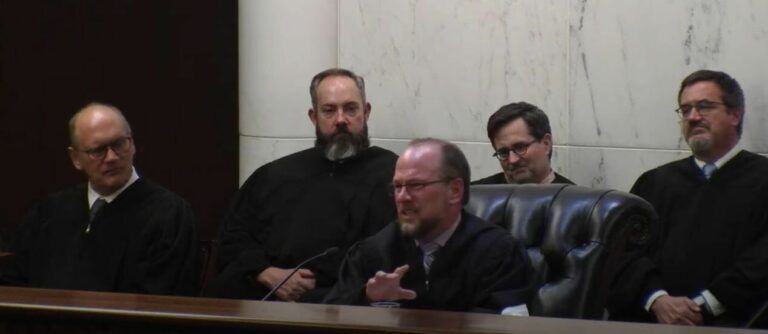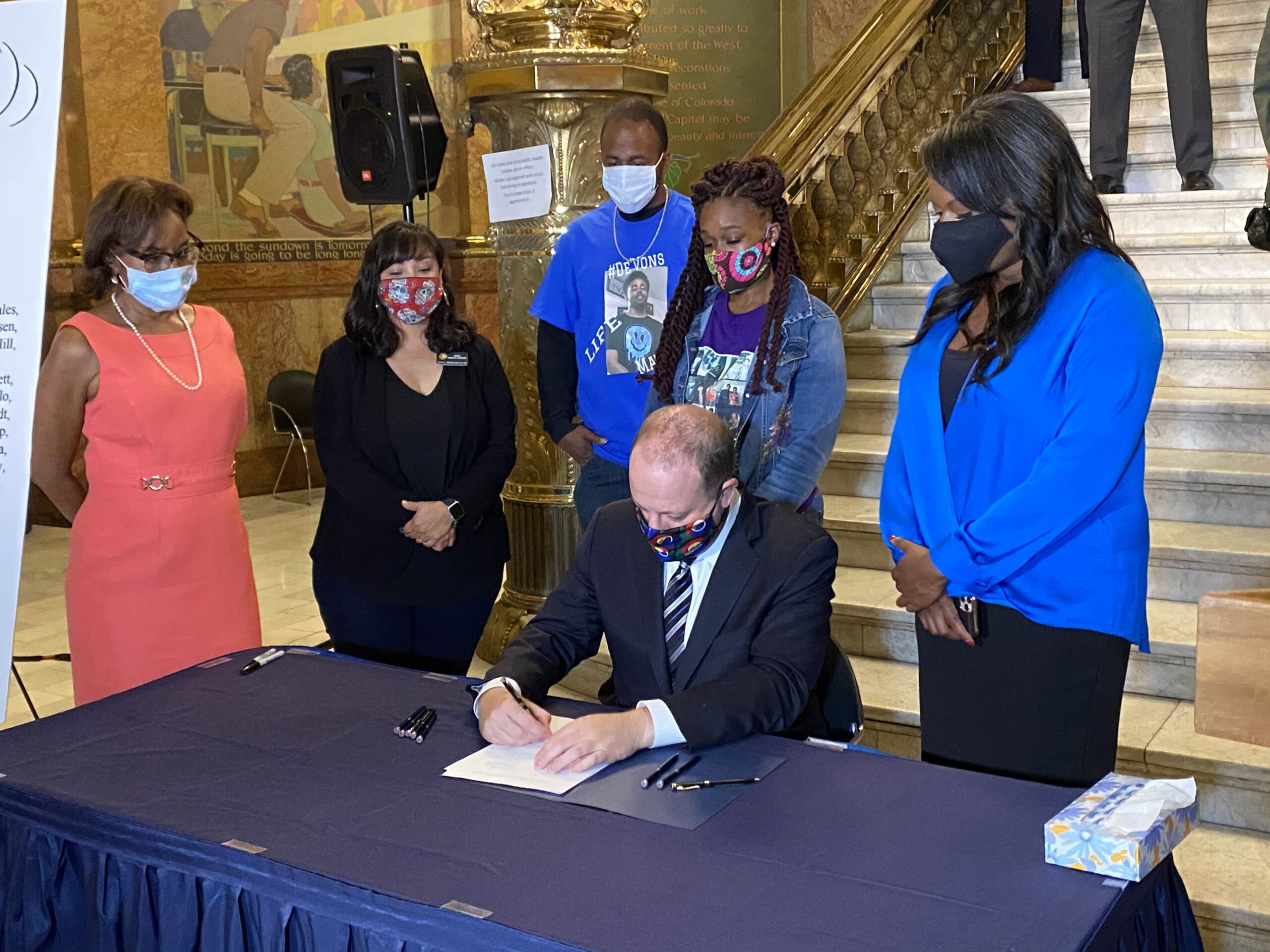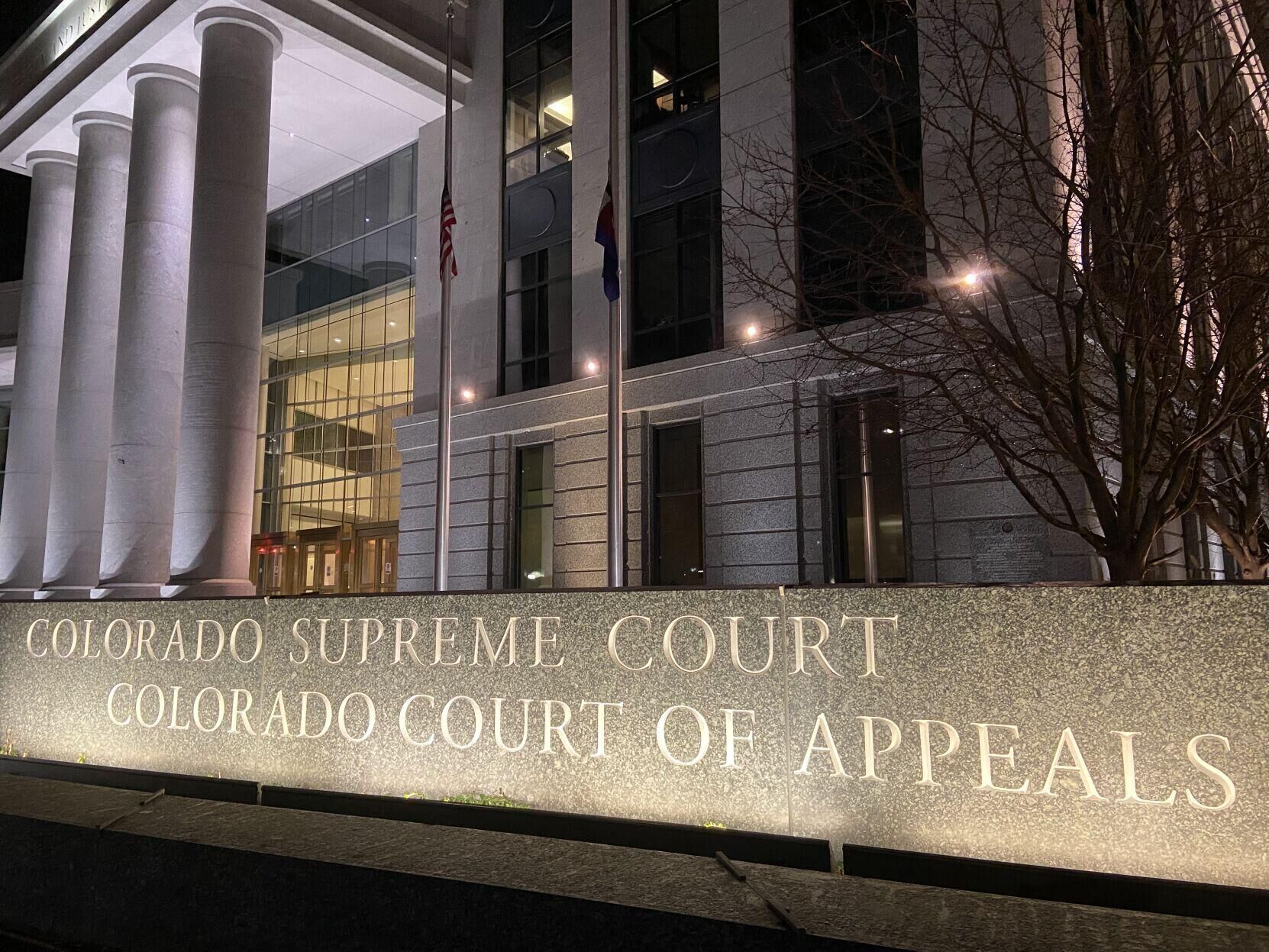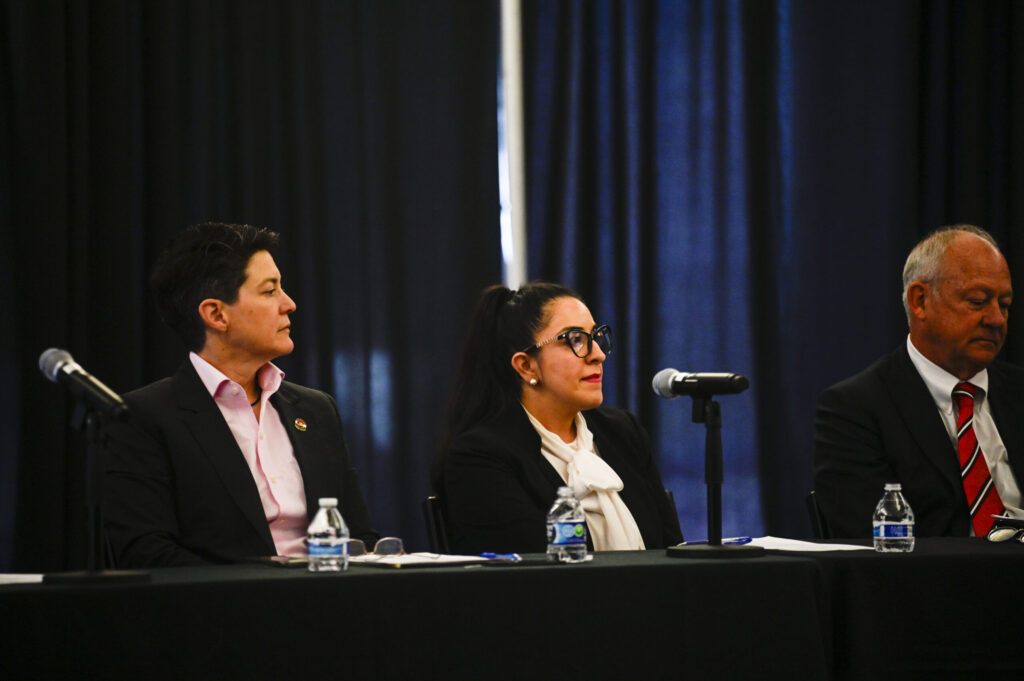Appeals court rules Fremont County must compensate victims of jail deputy’s sexual misconduct

Colorado’s second-highest court concluded last week that Fremont County is responsible for paying $128,357 to two women who were victims of a jail deputy’s sexual misconduct.
Samantha Hudnall and Marisa Palmas sued former Deputy Brandon Lucero for violating their rights under the Colorado Constitution. Lucero failed to respond to the allegations and a trial judge entered a default judgment against him. The plaintiffs then sought to enforce their damages award against Lucero’s employer, the county.
Fremont County made several arguments to the Court of Appeals about why it should not be liable. However, a three-judge appellate panel concluded the plaintiffs should prevail based on a specific provision of state law, in which legislators excused public entities from having to pay altogether if an officer was “convicted of a criminal violation.”
Although Lucero was prosecuted, he received a deferred judgment, meaning his misdemeanor conviction was ultimately wiped away.
Fremont County’s argument “would require us to conclude that Lucero was convicted of a crime even though his guilty plea was withdrawn, no judgment of conviction was ever entered, and all charges were dismissed,” wrote Judge Timothy J. Schutz in the Sept. 11 opinions. “This absurd outcome can be avoided by recognizing that the status of a deferred judgment and sentence is fluid until such time as the sentence is successfully completed or revoked.”
Case: Hudnall v. Board of County Commissioners and Palmas v. Board of County Commissioners
Decided: September 11, 2025
Jurisdiction: Fremont County
Ruling: 3-0
Judges: Timothy J. Schutz (author)
Terry Fox
Elizabeth L. Harris
Hudnall and Palmas alleged that beginning in October 2021, they and a third female detainee came forward to complain about Lucero’s inappropriate behavior towards them. His conduct included passing notes indicating he watched them shower, making sexual comments over the intercom, and unwanted kissing. He also allegedly attempted to establish relationships with the women.
An investigation resulted in Lucero being charged with a sexual misconduct felony and related misdemeanor offenses. Lucero pleaded guilty to one misdemeanor and received a deferred judgment and sentence. After he successfully completed a 12-month probationary period, the charges against him were dismissed.
Hudnall and Palmas sued Lucero under Senate Bill 217, a 2020 law enacted amid protests over the police killing of George Floyd in Minneapolis. Among other things, SB 217 permits lawsuits against police officers for violating people’s rights under the Colorado Constitution. It also lays out the scenarios in which an officer’s employer would ultimately have to pay a damages award.

In June 2024, then-District Court Judge Lynette M. Wenner added Fremont County as a party and, simultaneously, found it had to pay for Lucero’s misconduct. She noted SB 217 provides that, “notwithstanding any provision” to the contrary, a public employer shall “satisfy the full amount” when the damages are “uncollectible.”
“This plainly and unambiguously refers to the circumstance at issue,” Wenner wrote.
Fremont County pointed to a different provision excusing employers from indemnifying officers who were “convicted of a criminal violation.” But Wenner deemed that argument a “red herring” because SB 217 “plainly provides a path for reliable compensation to plaintiffs wronged by peace officer misconduct while limiting the officer’s financial exposure.”
After the county asked her to reconsider, Wenner conceded that Lucero was “convicted” of a criminal offense. Still, she reiterated SB 217 requires employers to satisfy a judgment “notwithstanding any other provision.”
Both sides appealed various aspects of Wenner’s decision. The Colorado Municipal League, as well as Colorado Counties, Inc. and the self-insurance pool for public entities, argued Wenner’s ruling essentially made government entities liable for even the criminal behavior of officers.
“Ultimately, imposing governmental entity liability for peace officers’ criminal conduct who are unable to pay corresponding civil judgments, exposes public entities and taxpayers to an unreasonable and unintended liability risk and financial consequences that cannot be effectively insured against,” they wrote.

During oral arguments in July, the appellate panel indicated the county was raising several new arguments it never made to Wenner. The county was also contending Wenner had found SB 217 “ambiguous.” In reality, she had observed in a footnote that a certain procedural mechanism could benefit from lawmakers’ clarification, but she otherwise deemed the relevant provisions “unambiguous” no fewer than three times.
Judge Elizabeth L. Harris focused on the issue that could decide the case entirely: whether Lucero’s deferred judgment meant he was “convicted.”
“Tell me the date on which he was convicted,” she asked the county’s attorney. “A deferred judgment means a conviction doesn’t enter. That’s the literal definition.”
Attorney J. Andrew Nathan responded that while a judge never entered a conviction, the law nonetheless treated Lucero as having been convicted.
“The county’s on the hook for absolutely everything except if the guy’s a criminal. But this guy is not a criminal,” countered Harris.
At the same time, she suggested it may be questionable as a policy matter to hold employers like Fremont County liable in cases like Lucero’s.
“If he’s acting so far outside the scope of his employment that he actually got convicted of a crime, that seems like, well, the employer didn’t really have anything to do with that,” Harris said.
Ultimately, the panel believed lawmakers did not intend to treat Lucero’s deferred judgment as a conviction that rendered him alone liable for the damages award. Schutz noted that the county’s logic would mean an officer who is convicted of a crime, yet who prevails on appeal, would remain “convicted.”
“Based on the unambiguous language of the statute, if Lucero was not convicted of a crime, the County must satisfy the Hudnall and Palmas judgments,” he wrote.
The cases are Hudnall v. Board of County Commissioners and Palmas v. Board of County Commissioners.













